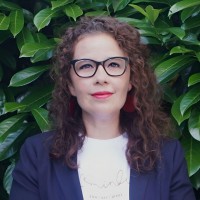Chavez, Maria Jazmin

Maria Jazmin Chavez was a Virtual Visiting Research Fellow who collaborated with Nidhi Nagabhatla within the Nature, Climate and Health Cluster at UNU-CRIS. Her research project concentrated in the investigation of the key factors that contribute to the severity and impacts of the disasters in the Amazon Region, in particular the recent water-related disaster events and during events with high water footprint (dry periods and floods). She focused in how disaster risk management, including climate resilience measures, early warning systems, infrastructure planning, and community engagement are used to mitigate water and climate risks and how these actions differ from one region to another in Amazonia.
Maria Jazmin Chavez completed her Master's studies in Geology at the Ensenada Center for Scientific Research and Higher Education (CICESE) in Baja California Mexico, she did a thesis about the theoretical magnetic fabric acquired by grains and phenocrysts within the flow of magma dikes. She also holds a PhD in Earth Sciences with major in Structural Geology and Tectonics from the Centro de Geociencias of the National Autonomous University of Mexico (UNAM). Under the supervision of Dr. Mariano Cerca, she used field observations and analogue modeling techniques in her PhD to study the physical aspects involved in the transport of magma through dikes in the upper earth’s crust and within monogenetic volcanoes. She has published her work in scientific journals (Journal of Maps, Journal of structural Geology, Revista Mexicana de ciencias Geologicas, Journal of Volcanology and Geothermal Research) and presented her research as expositor and invited speaker in international conferences organized by the American Geophysical Union, European Geophysical Union and Mexican Geophysical Union.
She worked as a Postdoc at Centro de Geociencias, UNAM and as a Research CONACYT Fellow at the Institute of Geophysics of the National Autonomous University of Mexico in the group of Hazards and Risks due to Natural Phenomena. In recent years, she has devoted her attention to cross-cutting topics between earth sciences and climate change. She is now in the final stage of a Master program about Adaptation to climate change at the Université de Versailles Saint-Quentin (UVSQ-Paris Saclay) where she developed skills and deep knowledge in topics of adaptation, resilience and impacts of climate change that she implemented to her work at UNU-CRIS.
